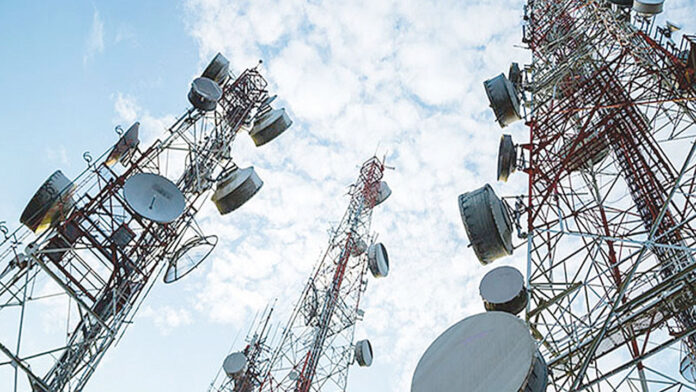Telecom investment in steady decline since 2014 except 2019
By Jeph Ajobaju, Chief Copy Editor
Foreign and local investment in Nigeria’s telecommunications market dipped to $107.46 million in 2021, the lowest in three years, dating back to 2018 when the sector attracted the previous lowest injection of $114.43 million.
Overall, the sector has seen a steady decline in investment since 2014 except 2019.
National Bureau of Statistics (NBS) data from the last two quarters of 2013 (Q3 and Q4 2013) to full year 2021 (FY 2021) shows that there was no investment in telecom in Q4 2021, bucking the trend of inflows for the eight years.
A breakdown of the investment is as follows:
- Q3, Q4 2013 – $535.78 million
- Q1 to Q4 2014 – $994.33 million
- Q1 to Q4 2015 – $938.13 million
- Q1 to Q4 2016 – $931.2 million
- Q1 to Q4 2017 – $544.6 million
- Q1 to Q4 2018 – $114.43 million
- Q1 to Q4 2019 – $944.05 million
- Q1 to Q4 2020 – $417.47 million
- Q1, Q2, Q3 2021 – $107.46 million
The NBS said it obtained capital importation data from the Central Bank of Nigeria (CBN and factors in imported physical capital, such as equipment and funds.
It divided capital importation into three main forms of investment: foreign direct investment, portfolio investment, and other investments.
Annual capital outflow in the eight years is estimated at $22.1 billion, out of which the Nigerian Communications Commission (NCC) said the annual outflow of foreign exchange (forex or FX) from the telecom sector is about $2.6 billion.
__________________________________________________________________
Related articles:
Foreign investment drops 34% to lowest in 5 years
New ITR to fetch MTN, Airtel, others $32.272m per year
MTN makes N1.2tr, surpasses Nigeria’s oil revenue
Full 5G launch requires $1.85tr; telcos get forex priority
__________________________________________________________________
Forex scarcity
A source in the Association of Licensed Telecommunication Operators of Nigeria (ALTON) said the fall in capital inflow into the sector is due to the scarcity of forex and inconsistent government policy, according to reporting by The PUNCH.
“The lack of forex has impacted on how we can import equipment into the country. This has reduced investments too.
“There is also the issue of end-user certificates. This is so because for us to import some equipment into the country, we need the certification of the security agencies, especially the National Security Adviser’s office,” he explained.
A recent report by Agusto & Co warned that the unstable macroeconomic environment in Nigeria threatens the telecom industry.
“In the span of five years (2016-2020),” the report said, “Nigeria has gone through two economic recessions while the naira has continuously lost value against the world’s major currencies, negatively impacting purchasing power and the ability to maintain quality network equipment and services.
“In addition to the fragile macroeconomy, the telecommunications industry has also had its fair share of unfavourable regulatory changes through onerous tax regimes, delayed approvals, and heavy regulatory penalties.”




